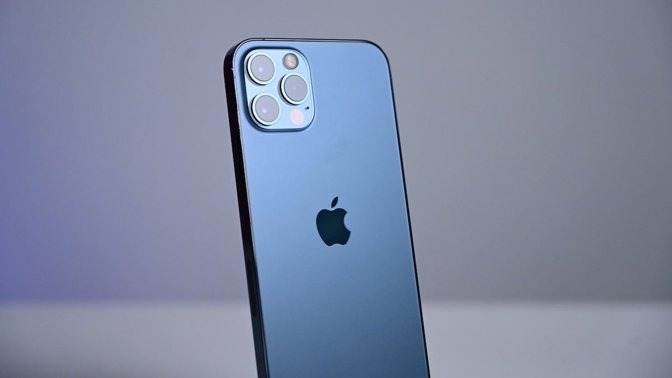Study finds Android shares 20x more data with Google than iOS does with Apple

According to researcher Doug Leith, who also serves as Trinity College's chair of computer systems, both iOS and Android continuously collect and send so-called telemetry data back to Apple and Google, respectively, reports ArsTechnica. This information ranges from inserting a SIM card into a smartphone to interacting with hardware and apps.
Data collection routines might run when a user is not logged, has opted out of data collection in privacy settings and when the handset sits idle. Leith found iOS shares information relating to IMEI, hardware serial number, SIM serial number, phone number, device IDs including UDID and ad ID, location, telemetry, cookies, local IP address and nearby Wi-Fi Mac addresses. Android sends similar data, adding device Wi-Fi MAC address but not tapping a handset's location, local IP address and nearby Wi-Fi Mac addresses.
What stands out is the amount of information collected, Leith says. According to his research, Android sends about 1MB of data to Google on startup, while iOS sends Apple roughly 42KB. When a handset is idle, Android sends another 1MB every 12 hours, which compares to about 52KB from iOS. In the U.S., Google is estimated to harvest 1.3TB of data from its users every 12 hours, while Apple is sent 5.8GB over the same period.
Leith measured data collected on first startup following a factory reset, when a SIM was inserted or removed when a handset was idle, when the settings screen was viewed, when location was enabled or disabled and when the user logged in to the preinstalled app store, the report said.
A Google Pixel 2 running Android 10 was used to measure Android data collection. An unknown iPhone model running iOS 13.6.1 was jailbroken to monitor network connections for the same purpose.
Google claims Leith's methodology is flawed, adding that data collection is a core function of any connected device. Speaking on background, a spokesperson challenged the experiment's validity, noting it failed to capture data like UDP/QUIC traffic.
Leith warns that data collection practices are inherently dangerous, no matter the amount of information being passed back home.We identified flaws in the researcher's methodology for measuring data volume and disagree with the paper's claims that an Android device shares 20 times more data than an iPhone. According to our research, these findings are off by an order of magnitude, and we shared our methodology concerns with the researcher before publication.
This research largely outlines how smartphones work. Modern cars regularly send basic data about vehicle components, their safety status and service schedules to car manufacturers, and mobile phones work in very similar ways. This report details those communications, which help ensure that iOS or Android software is up to date, services are working as intended, and that the phone is secure and running efficiently.
"Currently there are few, if any, realistic options for preventing this data sharing," Leith wrote.


Comments
"Leith found iOS shares information relating to IMEI, hardware serial number, SIM serial number, phone number, device IDs including UDID and ad ID, location, telemetry, cookies, local IP address and nearby Wi-Fi Mac addresses.
Android sends similar data, adding device Wi-Fi MAC address but not tapping a handset's location, local IP address and nearby Wi-Fi Mac addresses."
https://www.scss.tcd.ie/doug.leith/apple_google.pdf
2. This is probably why Android is seen to not send out the device's location, whereas Apple does get that info: "Find My" is part and parcel of iOS, whereas with Android it's probably just an app, and thus not counted in this study. It should go without saying that of course your carrier gets, stores, and sells your location data far more than even Google. I would hop Mr. Leith would consider doing another study that looks at that aspect of device "phoning home" and discover how that compares.
The bottom line here is that everything Apple collects is enumerated and explained clearly in their privacy policy, whereas Google doesn't even know what the word "privacy" means. Every single Google service is built around the core of needing to collect further data from its users, because that is literally their business model. Apple follows a policy of collecting as little as possible to make a service work, holding on to it for as short a time as possible, and explaining what they do and why.
Both platforms ask if you want to use this feature when setting up a new device so you have to actively subscribe to this feature in order to use it.
Why the study claims that Google is not gathering location data is beyond me though, many of Google's features (e.g. traffic predictions and peak times for places) are based on location data (and it works so well because every Android user is involuntarily contributing to it).
The little bit of extra wifi and location data that Apple collects is probably related to “Find My” and walled garden issues, i.e. sharing wifi passwords across Apple devices for a seamless consumer experience.
We actually collect 50x as much data. Bwahahahaha!!!!
There’s a whole comic book in there.
The too frequent ignorance shown about Android and Google in general, and the plethora of incorrect claims made by otherwise smart guys here who repeat misinformation (or simply make it up) without checking the veracity, is screaming for accuracy.
You're a smart guy, and I'm sure if you're going to make a factual claim about something in the photography field you're going to make relatively certain it's accurate. On top of that if someone with more knowledge of that particular thing were to point out you being mistaken and politely correcting it would you be insulted or appreciative? I would hope the latter since the former tends to come from small minds. Why would you want anything less with regard to your other interests?
You're welcome, no thanks expected